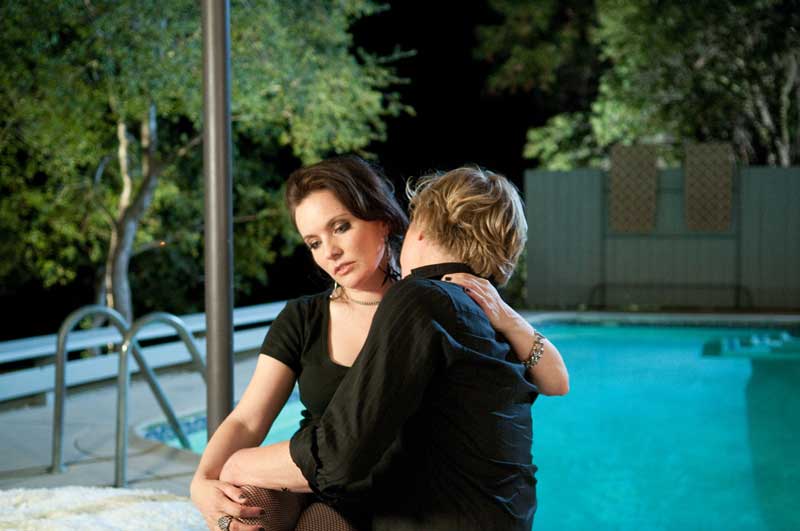|
The Paliament Film Collective's (Partial) Canon of Lesbian Cinema |
||||
 |
||||
M.J. and Iris (V.S. Brodie and Guinevere Turner). Still from The Owls (dir. Cheryl Dunye, 2010). Used with permission from the Parliament Film Collective. |
||||
The Parliament Film Collective's
(Partial) Canon of Lesbian Cinema
Page 3 of 3
Tania Hammidi: Pratibha Parmar's Khush is my favorite lesbian independent film because of the poetic nature of the documentary. Parmar’s films are aesthetically lush, have many narrative overlaps, and are oriented toward telling complicated stories about queer life inclusive of a critique of racism. New film students would gain from understanding the formal disruptions Parmar makes to the conventional documentary forms in her choice(s) of voice-over, lacing the visual field with historical images, and evoking the affect of queerness in the dancer of the film. Khush marks itself as an early 1990s feminist film attuned to a wish for home in the diaspora and the Indian subcontinent. That should be enough to begin a great discussion.
Campbell: My two favorite films are She Must be Seeing Things and The Watermelon Woman. She Must Be Seeing Things is the only film I have seen that deals with issues such as jealousy, power, interracial desire, and BDSM in a film. The film used women from the lesbian art world and performance artists, and I love the way that artists, performers, and filmmakers can collaborate. The Watermelon Woman was very innovative in form and narrative structure. The mixing of documentary, fiction, and faction was pure genius. The way it created the lost history of an invisible Black woman in history to represent the silent voices of Black women in Hollywood also mirrored Julie Dash's Illusions.
Michael Lucid: My favorite queer film is Todd Haynes' Poison for the way it artfully talks about the gay experience and psyche through its adopting different genre forms and themes (documentary, horror film, queer experimental art film). A very eerie, beautiful, and haunting film, Poison comments on the queer as outcast in a lyrical, comedic, and melancholy way.
Love Ablan: One of the few DVDs I actually own is High Art. But as a photographer, what appealed to me more than the lesbian relationships in the film was the intimacy between subject and photographer, which I think transcends gender and sexuality. And I loved the moody cinematography and languid pacing of the film. Plus I just adore Patricia Clarkson in everything. As for queer films though, perhaps my favorite is The Blossoming of Maximo Oliveros. To see a coming-of-age film about a cross-dressing boy, where all the characters speak natively in Tagalog, resonates with me personally on so many levels. I think it is a touching story that portrays the remarkable love and unusually high tolerance in Filipino culture for family, despite dogma and traditionalism.
Sarah Schulman: I recommend Gently Down the Stream (Su Friedrich) and Je Tu Il Elle (Chantal Ackerman) for their formal innovations toward representing lesbian identity, journey, and longing. I also recommend Maya Deren’s Meshes of the Afternoon as a foundational film for lesbian cinema in its early depictions of female eroticism.
Sarah Schulman at the Berlinale [2:44]
Copyright © 2014. All rights reserved.